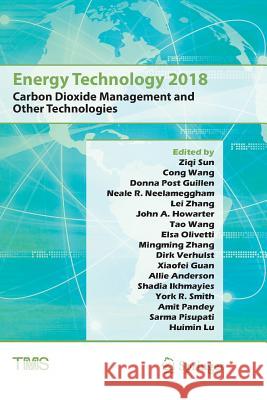Energy Technology 2018: Carbon Dioxide Management and Other Technologies » książka
topmenu
Energy Technology 2018: Carbon Dioxide Management and Other Technologies
ISBN-13: 9783319891767 / Angielski / Miękka / 2019 / 618 str.
Kategorie:
Kategorie BISAC:
Wydawca:
Springer
Seria wydawnicza:
Język:
Angielski
ISBN-13:
9783319891767
Rok wydania:
2019
Wydanie:
Softcover Repri
Ilość stron:
618
Waga:
0.89 kg
Wymiary:
23.39 x 15.6 x 3.3
Oprawa:
Miękka
Wolumenów:
01
Dodatkowe informacje:
Wydanie ilustrowane











